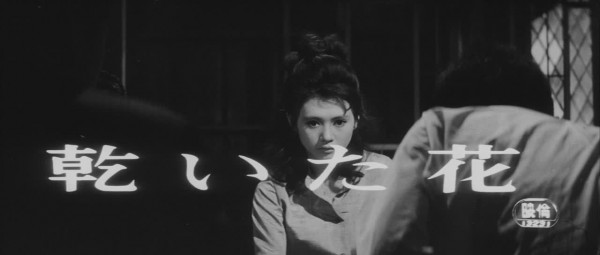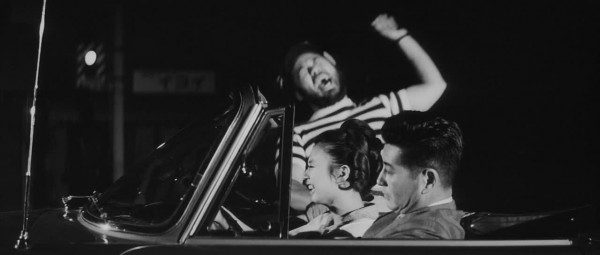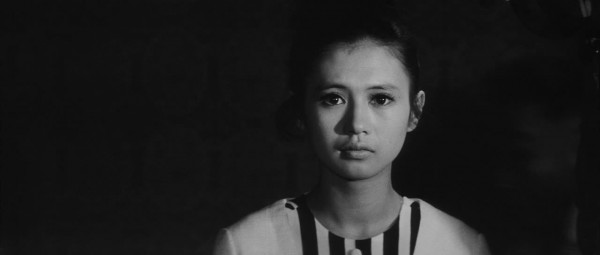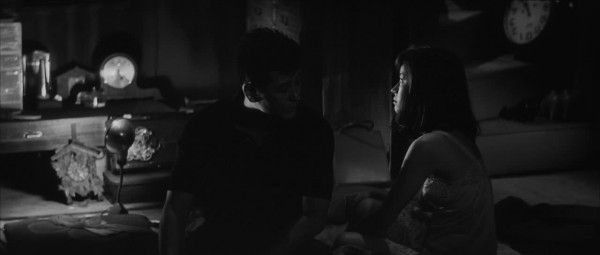Pale Flower
aka 乾いた花 aka Kawaita Hana

1964![]()
Written by Masaru Baba and Masahiro Shinoda
Based on the book by Shintaro Ishihara
Directed by Masahiro Shinoda

Pale Flower starts out slow and continues the leisurely pace, building up the complex web of characters and simmering gang drama. Muraki (Ryo Ikebe) is newly released from prison, after serving a few years for killing a rival gang member. By now the gangs are in a loose confederation as a third power has become a threat to both. The two former rival leaders spend part of their time arguing like old bickering lovers. Muraki is brought back into the swing of things, but kept out of any heavy action because of his recent release status. The reacquaintance with underworld activities results in one exciting point, a striking young woman (Mariko Kaga) who shows up at one of the local gambling houses, bets big, seems bored, and speaks to no one. Muraki manages to attract a scrap of attention from her when he matches one of her large bets.
After a few weeks of gambling together in silence, Muraki scores a conversation with her. She goes by Saeko, and the small time bets no longer excite her. Muraki says he can get her bigger action, he just needs to ask around for where the games are played now. They agree to meet up later in the week, and a partnership is born. Saeko is a thrill-seeker, zipping around in her sports car, betting big. She senses the danger in Muraki and it attracts her, but not in a sexual lust way. Simply being around him is enough. One look at Saeko answers all questions of why any guy would hang with her.

The increasing bets and Saeko’s danger chasing mirror the increasing threats from the real world. A cryptic guard at one of the games Muraki pegs for a maniac, and soon Muraki is being talked down dark alleys by a hidden killer. The upstart gang kills an important gang figure, and there must be a response of killing their leader. Muraki volunteers, his stretch of freedom growing sour at the same time his relationship with Saeko seems to be going south. But she reunites with him as he prepares to go off to do his job, seeing someone be murdered is a thrill she hasn’t experienced yet.
Muraki is a low-key gangster who seems bored with life in general and justifies his killing by talking down on mankind as a whole. His relationship with Saeko isn’t overtly sexual, but is two people at a similar point in life that come together because they click, and tension boils beneath the surface. Muraki has a woman who waited for him while he was away, she sleeps in the clock shop her family owns, the scenes there punctuated by the ticking of hundreds of clocks, a reminder of the limited length of life. She can’t stay away from Muraki even though he’s no good, and follows him, observing his relationship with Saeko.















